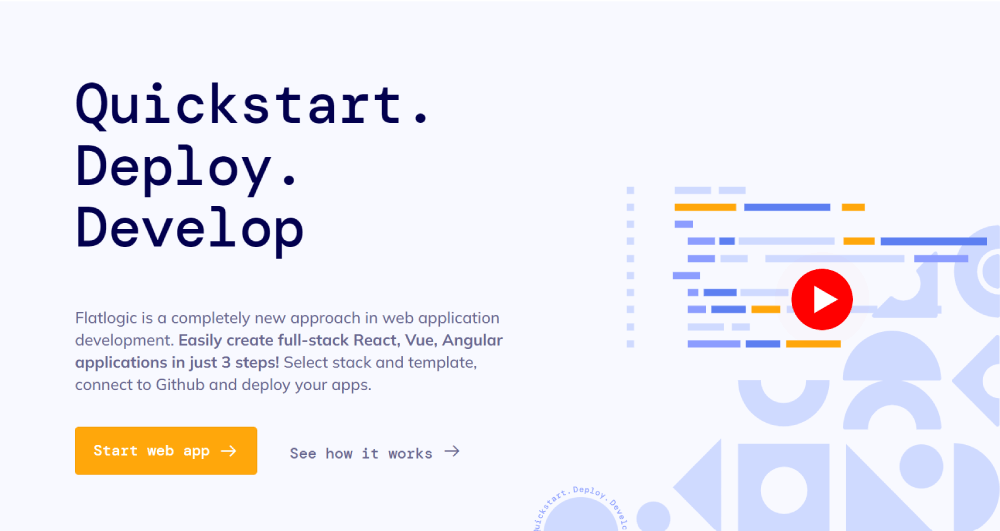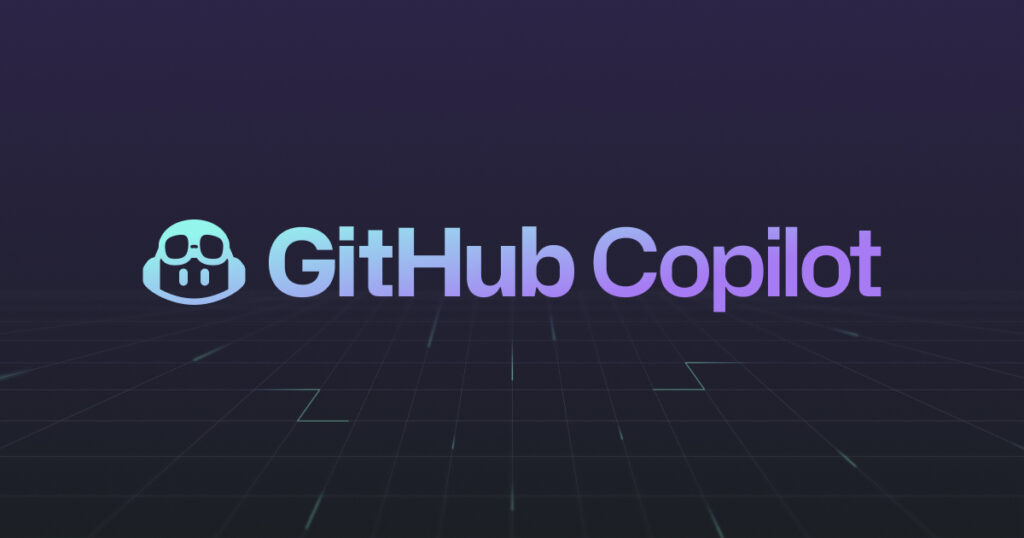Introduction – The AI Coding Assistant Showdown
I don’t know about you, but sometimes coding can feel like an endless loop of writing boilerplate code, fixing minor errors, and searching Stack Overflow for solutions. Wouldn’t it be nice if something could handle all the repetitive tasks while I focused on the bigger picture? Well… that’s exactly what AI-powered coding assistants are trying to do.
AI is no longer just a cool experiment—it’s changing the way we write code. These tools are getting smarter, faster, and more intuitive, helping developers code more efficiently, reduce errors, and even learn new programming techniques along the way. I’ve used a few of them myself, and honestly, they’re game-changers… but not all AI coding assistants are created equal.
Right now, three of the biggest names in AI-assisted development are GitHub Copilot, Tabnine, and Codeium. Each of them promises to speed up your workflow, predict your code, and make you a more productive developer. But which one is actually the best? Which one gives you the most accurate suggestions, the smoothest experience, and the best value for money?
That’s exactly what I’m here to find out. In this head-to-head comparison, I’ll break down what makes each of these AI coding assistants special, how they perform in real-world coding, and which one might be the best fit for your workflow.
So… are AI assistants really the future of coding? Or are they just a fancy autocomplete? And more importantly… which one is worth your time? Let’s dive in and find out.
Overview of Each AI Coding Assistant
AI coding assistants are everywhere now… but not all of them work the same way. Some are powerful and deeply integrated, while others focus on privacy and speed. So, how do GitHub Copilot, Tabnine, and Codeium actually stack up against each other?
I’ve used all three, and I have to say—each has its own strengths and quirks. Some feel more polished, others are lightweight and fast, and then there’s the question of pricing… because let’s be honest, nobody likes paying for something that doesn’t deliver.
Let’s break them down one by one and see what they bring to the table.
GitHub Copilot – The AI Powerhouse
If there’s one AI coding assistant that gets all the hype, it’s GitHub Copilot. It was one of the first serious AI tools for developers, and since it’s built on OpenAI Codex, it has some serious intelligence under the hood.
What makes it stand out?
- Deep GitHub integration – Since it’s owned by GitHub, Copilot is trained on an insane amount of open-source code, making its suggestions context-aware and highly relevant.
- Works great with VS Code – If you’re a VS Code user, this is one of the smoothest AI experiences out there.
- Understands comments and natural language – You can literally type
// Write a function to calculate Fibonacci numbers, and Copilot will write the entire function for you.
Where it shines
I have to admit, Copilot feels magical at times. It doesn’t just predict the next word—it predicts entire lines, functions, and even multi-file implementations. It’s scary how well it understands your coding style, especially after using it for a while.
But… does it get everything right? Not always.
Where it struggles
- Sometimes generates incorrect or inefficient code – Just because Copilot suggests something doesn’t mean it’s always correct. You still need to review it carefully.
- Paid subscription model – It’s not free ($10/month for individuals, $19/month for businesses). So if you’re on a budget, that’s something to consider.
- Privacy concerns – Since it’s cloud-based, some developers worry about whether their code is being used for future AI training.
Would I recommend it? Absolutely—if you want the most advanced, context-aware AI assistant out there and don’t mind paying for it.
Tabnine – Privacy-Focused and Developer-Friendly
Now, if GitHub Copilot is the AI rockstar, Tabnine is the privacy-conscious, efficiency-focused alternative. While Copilot aims to think like a human, Tabnine focuses on speed, efficiency, and data privacy.
What makes it stand out?
- Local AI models available – Unlike Copilot, Tabnine can run locally, meaning your code never leaves your machine (great for businesses with strict security policies).
- Fast, lightweight, and doesn’t disrupt workflow – It doesn’t try to predict full functions, but it does a great job of autocompleting code quickly.
- Supports multiple IDEs – Works with VS Code, JetBrains, Sublime Text, and more, making it more flexible than Copilot.
Where it shines
I think Tabnine is perfect for developers who want AI-assisted coding but don’t want to rely on a cloud-based AI assistant. It’s fast, secure, and plays nicely with a lot of IDEs.
Where it struggles
- Not as advanced as Copilot – It’s great for completing code snippets, but it doesn’t generate entire functions or multi-line implementations as well as Copilot does.
- Can be a bit limited in free mode – Tabnine offers a free version, but the best features are behind a paywall ($12/month for Pro).
- Not as context-aware – Since it prioritizes speed and privacy, its suggestions aren’t always as smart or predictive as Copilot’s.
Would I recommend it? Yes—if you care about privacy, work in an enterprise setting, or just want a lightweight AI assistant that doesn’t overwhelm you with full-function suggestions.
Codeium – The Free and Fast Challenger
I have to be honest… Codeium surprised me. It’s relatively new, but it’s quickly becoming a serious competitor to both Copilot and Tabnine—mainly because it’s free. Yep, you read that right.
What makes it stand out?
- 100% free for individual developers – Unlike Copilot and Tabnine, Codeium doesn’t charge individual users, which is a huge deal for students and budget-conscious devs.
- Fast and lightweight – Codeium feels really responsive, especially for quick auto-completions.
- Supports 70+ languages – That’s more than Copilot and Tabnine, making it a great option for developers who work with multiple languages.
Where it shines
I’ll be honest—I didn’t expect much from a free AI coding assistant, but Codeium impressed me. It’s fast, flexible, and works well for basic AI-assisted coding. If you’re a beginner or just don’t want to pay for AI assistance, this is a fantastic alternative.
Where it struggles
- Not as powerful as Copilot – While it’s great for snippets and small functions, it doesn’t generate large blocks of code as well as Copilot does.
- Lacks some customization features – Tabnine lets you train a local model and Copilot integrates deeply with GitHub, but Codeium doesn’t have as many advanced options yet.
- Still growing – It’s not as widely adopted as Copilot or Tabnine, so its AI model is still learning and improving.
Would I recommend it? Yes—especially if you’re looking for a free AI assistant that does a solid job without locking features behind a paywall.
Ease of Use and Developer Experience
Let’s be real—no matter how powerful an AI coding assistant is, if it’s a pain to set up or doesn’t integrate smoothly with my workflow, I’m probably not going to use it. A great AI tool should feel like an invisible assistant—helping when needed, but never getting in the way.
So, how do GitHub Copilot, Tabnine, and Codeium compare when it comes to installation, integration, and customization? Let’s break it down.
Installation and Setup Process
First things first—how easy is it to get started with each tool?
GitHub Copilot
I’ll be honest, Copilot’s setup is super simple—as long as you’re using VS Code.
- Install the GitHub Copilot extension from the VS Code marketplace.
- Sign in with your GitHub account.
- Activate your Copilot subscription (yes, you need a paid plan).
That’s it. Within minutes, Copilot starts suggesting code as you type. However… if you don’t use VS Code, the setup gets trickier. Copilot doesn’t support as many IDEs as Tabnine or Codeium, which might be a dealbreaker for some developers.
Tabnine
Tabnine is also really easy to install, and it works with way more IDEs than Copilot.
- Download the Tabnine plugin from your IDE’s marketplace (VS Code, JetBrains, Sublime, Atom, Eclipse, and more).
- Sign up (optional—local models don’t require an account).
- Start coding.
The best part? Tabnine doesn’t force you to use a cloud-based model. You can install it locally and never send your code to external servers—which is a big plus for privacy-focused developers.
Codeium
Codeium is completely free and has one of the simplest setups out there.
- Download the Codeium extension for your IDE.
- Create a free account (or use it anonymously with limited features).
- Start coding with AI assistance.
I was impressed by how lightweight and fast Codeium’s setup is. No annoying subscription screens, no complicated configurations—just install and go.
💡 Winner: Tie between Codeium and Tabnine (simple setup, wide IDE support, and no forced subscriptions).
Integration with Popular IDEs
If you’re like me, you probably have a favorite IDE that you refuse to switch from. So, which AI coding assistant works with the most IDEs?
| AI Assistant | Supported IDEs | Best Experience |
|---|---|---|
| GitHub Copilot | VS Code, JetBrains, Neovim | Best for VS Code users |
| Tabnine | VS Code, JetBrains, Sublime, Vim, Atom, Eclipse, IntelliJ | Most flexible, supports many IDEs |
| Codeium | VS Code, JetBrains, Jupyter Notebook, Vim, Sublime | Surprisingly broad support |
GitHub Copilot
If you live inside VS Code, Copilot is by far the smoothest experience. It’s deeply integrated with GitHub and feels like a native part of your workflow. But if you use other IDEs? The experience isn’t as seamless.
Tabnine
Tabnine wins for flexibility. It works across almost every major IDE, from JetBrains to Vim. If you don’t want to be locked into VS Code, Tabnine is the best choice.
Codeium
Codeium is actually better than I expected when it comes to IDE support. It even works with Jupyter Notebook, which is great for data scientists. The only downside? It’s still relatively new, so some integrations aren’t as polished as Copilot’s or Tabnine’s.
💡 Winner: Tabnine (widest IDE support).
Customization and User Control Over AI Suggestions
One of my biggest pet peeves? AI that gets in the way. If I’m typing, I want suggestions to feel helpful—not intrusive. So, how much control do these AI assistants give developers?
GitHub Copilot
Copilot is highly context-aware, but it doesn’t offer much customization.
- You can’t fine-tune how often suggestions appear.
- You can’t adjust the size or complexity of suggestions.
- It learns from your style over time, but you can’t manually tweak its behavior.
It’s great out of the box, but if you want more control, it might feel limiting.
Tabnine
Tabnine shines in customization. You can:
✅ Adjust how frequently AI suggestions appear.
✅ Toggle between local or cloud-based AI models.
✅ Train Tabnine on your own codebase (if you’re on the enterprise plan).
For developers who want full control, Tabnine is the most customizable AI assistant.
Codeium
Codeium gives you some control, but not as much as Tabnine.
- You can adjust suggestion length and frequency.
- You can’t train it on your own codebase.
- The AI doesn’t “learn” from your habits—it stays the same over time.
For a free tool, it’s pretty good, but if you love tweaking settings, Tabnine is still the better choice.
💡 Winner: Tabnine (best customization and user control).
Final Thoughts: Which One Offers the Best Developer Experience?
So, after testing installation, integration, and customization, here’s my verdict:
- Best for beginners? Codeium (free, easy to install, no subscriptions).
- Best for power users? Tabnine (most IDE support + customizable).
- Best for seamless experience? GitHub Copilot (if you use VS Code, it’s unbeatable).
Personally, I think Tabnine wins in terms of flexibility and customization, but if you’re a hardcore GitHub + VS Code user, Copilot is the smoothest experience.
What do you think? Do you prefer seamless AI integration, or do you want full control over how AI assists you? Let me know—I’d love to hear how these tools fit into your workflow! 🚀
Final Verdict – Which AI Coding Assistant Wins?
So… after testing GitHub Copilot, Tabnine, and Codeium, which one is actually the best? Well… it depends. Each of these AI coding assistants has its own strengths, and the right choice really comes down to your coding style, workflow, and priorities.
- If you want the most powerful and context-aware AI, and you don’t mind paying for it, GitHub Copilot is hands down the best choice—especially if you live in VS Code.
- If you prefer privacy, customization, and broad IDE support, Tabnine is the most flexible and gives you the most control over how AI assists you.
- If you want a solid, free alternative that still delivers AI-powered coding without a price tag, Codeium is a surprisingly great option.
Will AI Assistants Replace Human Coders?
I don’t think so… at least not anytime soon. While these tools speed up development, reduce repetitive tasks, and help with debugging, they still require human oversight. AI can predict patterns and generate code, but it doesn’t understand complex problems the way we do.
Instead of replacing developers, AI is becoming a powerful sidekick—one that can help us write better code, faster.
Which One Would I Personally Use?
For me? I’d probably use a combination. Copilot for its advanced suggestions, Tabnine for its customization, and Codeium when I need a free, lightweight alternative. AI assistants are evolving fast, so who knows? In a year, the “best” tool might look completely different.
So… what about you? Which AI coding assistant fits your workflow best? Are you already using one of these, or are you still skeptical about letting AI write your code? Let me know—I’d love to hear your thoughts! 🚀



